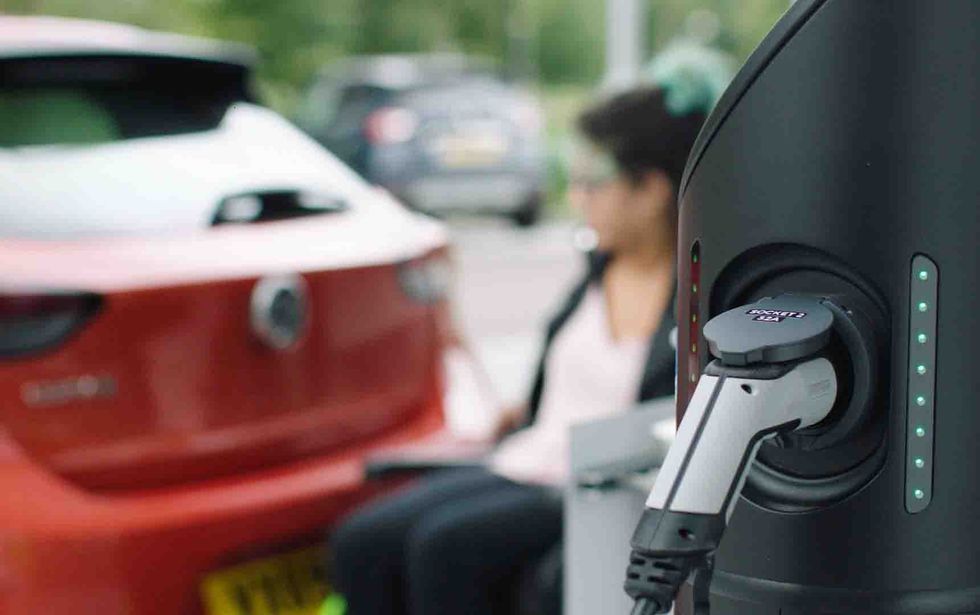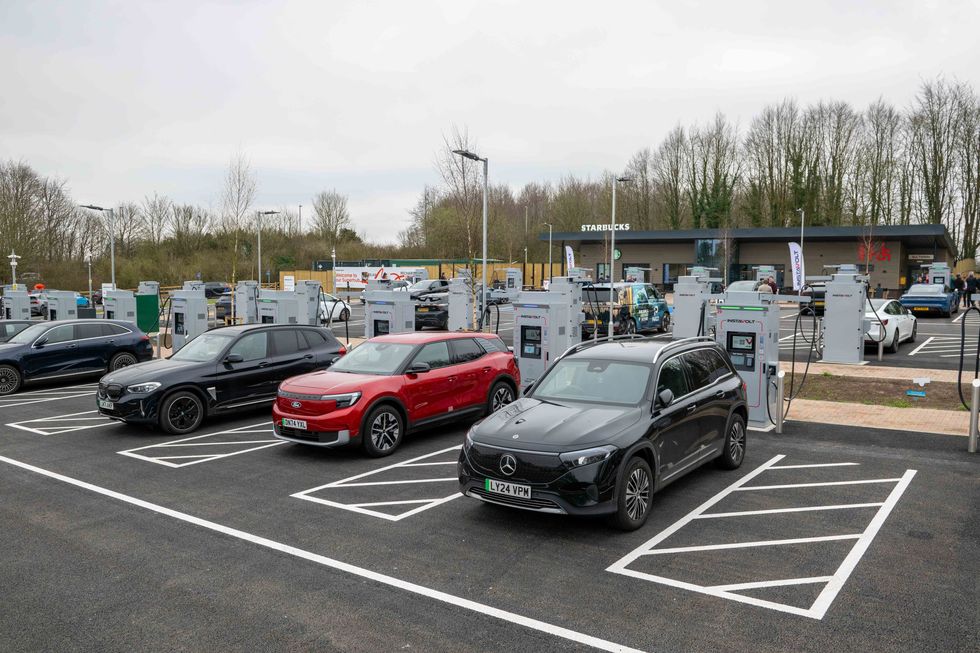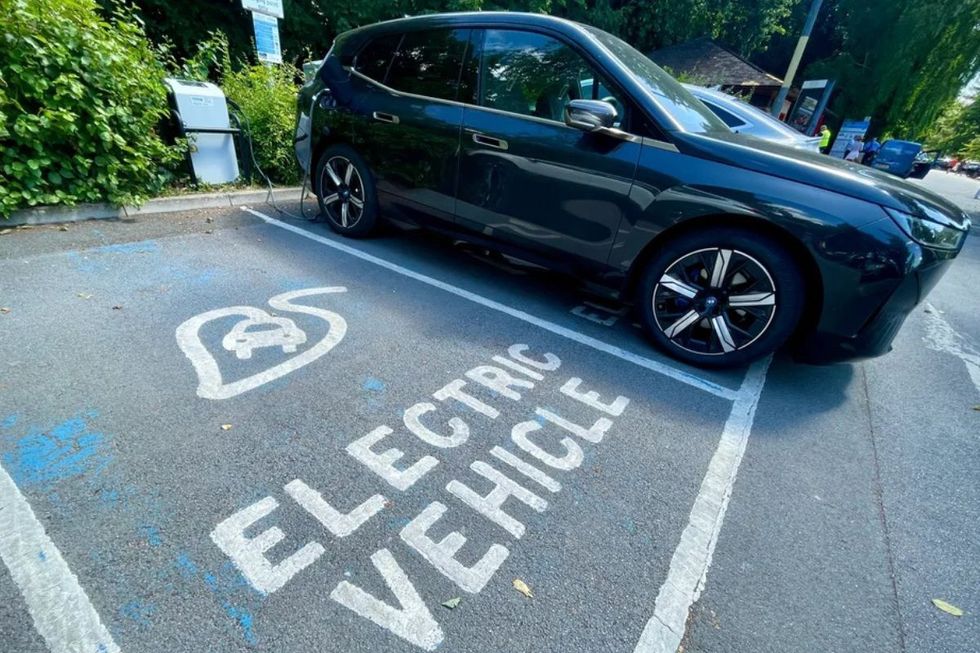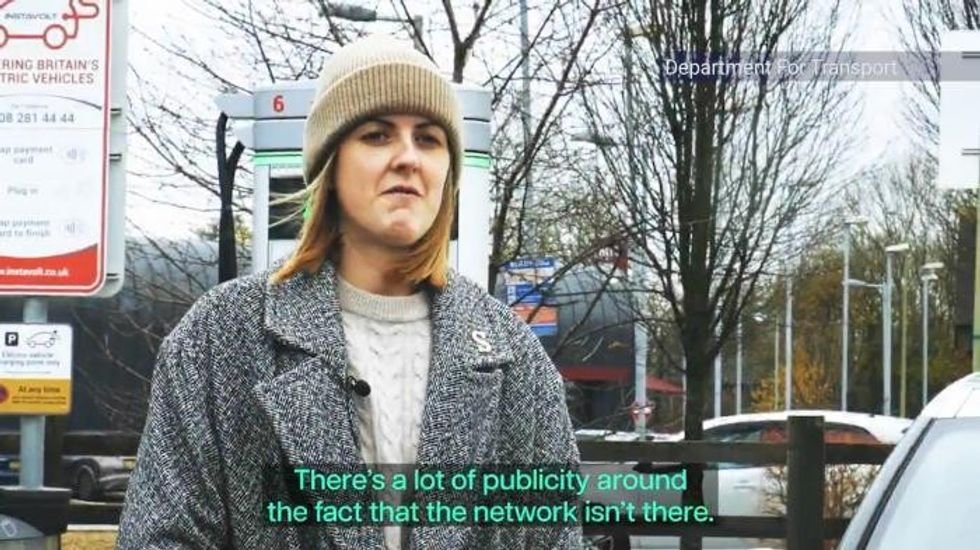A groundbreaking examine has uncovered important boundaries stopping disabled motorists from embracing electrical automobiles, with greater than half struggling to deal with the load of public charging cables.
Analysis revealed by the Electrical Automobile Affiliation England revealed that 51 per cent of drivers with disabilities discover ultra-rapid charging cables exhausting or extraordinarily exhausting to handle, in contrast with simply 21 per cent of different motorists.
The findings emerge because the UK’s charging community expands quickly, but solely 2.3 per cent of the nation's 80,000 public cost factors meet accessibility requirements.
With 1.35 million disabled motorists anticipated to rely upon public charging by 2035, campaigners have now warned that insufficient infrastructure might lock tens of millions out of the electrical automobile revolution.
Do you’ve a narrative you'd wish to share? Get in contact by emailing motoring@gbnews.uk

The nationwide examine surveyed 249 electrical automobile drivers between April and Could 2025, with 73 individuals figuring out as having bodily or psychological well being circumstances.
The info revealed hanging disparities throughout completely different charging speeds, with 53 per cent of disabled motorists experiencing difficulties with fast chargers as much as 50kW in comparison with solely 10 per cent of non-disabled drivers.
Even slower charging infrastructure posed issues, with 28 per cent of disabled respondents battling quick chargers as much as 22kW.
Extremely-rapid chargers, delivering energy as much as 350kW, proved most problematic, with 36.7 per cent of disabled drivers ranking the cables as very tough to handle.

Survey individuals shared harrowing accounts of their struggles with charging infrastructure. "A number of instances I've virtually overbalanced with the load of the cable; I wanted to ask for assist just a few weeks in the past at a service," one respondent revealed.
One other driver defined their household's predicament: "My spouse is disabled and will at present not handle any fast or ultra-rapid cables in any respect – she would want a stronger cable assist answer than I’ve seen."
Steadiness points compounded the difficulties for some customers. "Everyone seems to be completely different, so tough to generalise, however though I can stroll quick distances, I've issues with my steadiness, so I discover some are so heavy I can't maintain and maintain onto a automotive or unit for steadiness," a participant famous.
The boundaries lengthen past present drivers. "A disabled relative with low upper-body energy has struggled to attach a CCS cable to my automotive. This has put her off shopping for an EV," one other respondent shared.
LATEST DEVELOPMENTS:
- Main automotive model turns into newest automaker to launch £3,750 grant for brand new electrical automobiles
- Motorists threat having driving licences 'robotically cancelled' for breaking Freeway Code rule
- Reform scraps £7.5million web zero EV pledge as councillors take intention at Labour – 'Fund us correctly!'
The UK’s charging infrastructure has grown exponentially, with new cost factors put in each 29 minutes in line with Authorities knowledge.
Regardless of this growth, accessibility stays critically uncared for, with a Vauxhall examine performed final 12 months discovering that merely 2.3 per cent of public chargers are appropriate for disabled customers.
The rollout significantly favours high-speed infrastructure, with ultra-rapid charger numbers leaping 27 per cent between 2023 and 2024, rising from 3,411 to 4,353 items.
These sooner chargers require thicker, heavier cables to deal with elevated energy hundreds, exacerbating accessibility challenges.

An estimated 7.4 to 9.9 million UK households lack non-public charging amenities, making public infrastructure important. By 2035, roughly 1.35 million disabled people might want to rely partially or totally on public charging networks, highlighting the urgency of addressing present shortcomings.
Vicky Edmonds, EVA England's chief govt, urged parliamentarians to amend the Planning and Infrastructure Invoice at present progressing by means of the Lords.
"A number of focused adjustments to the Planning and Infrastructure Invoice at present making its means by means of Parliament, for example, might present the extra ensures drivers with disabilities urgently want," she acknowledged.
The proposed modification would grant the Authorities the best to implement accessibility necessities, although Ministers rejected related proposals throughout the Commons stage.
